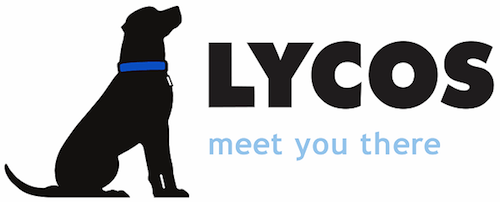Lycos, Inc. is a search engine and web portal established in 1994. Lycos also encompasses a network of email, webhosting, social networking, and entertainment websites.
History
Lycos is a university spin-off that began as a research project by Michael Loren Mauldin of Carnegie Mellon University's main Pittsburgh campus in 1994. Lycos Inc. was formed with approximately US $2 million ($3.2 million today) in venture capital funding from CMGI. Bob Davis became the CEO and first employee of the new company in 1995, and concentrated on building the company into an advertising-supported web portal. Lycos enjoyed several years of growth during the 1990s and became the most visited online destination in the world in 1999, with a global presence in more than 40 countries. In 1996, the company completed the fastest IPO from inception to offering in NASDAQ history. In 1997, it became one of the first profitable internet businesses in the world. In 1998, Lycos paid $58 million ($83.9 million today) for Tripod in an attempt to "break into the portal market." Over the course of the next few years, Lycos acquired nearly two dozen internet brands including Gamesville, WhoWhere, Wired Digital (eventually sold to Wired), Quote.com, Angelfire, Matchmaker.com and Raging Bull.
Lycos Europe was a joint venture between Lycos and the Bertelsmann transnational media corporation, but it has always been a distinct corporate entity. Although Lycos Europe remains the largest of Lycos's overseas ventures, several other companies also entered into joint venture agreements including Lycos Canada, Lycos Korea and Lycos Asia. Near the peak of the internet bubble on May 16, 2000, Lycos announced its intent to be acquired by Terra Networks, the internet arm of the Spanish telecommunications giant Telefónica, for $12.5 billion ($17.7 billion today). The acquisition price represented a return of nearly 3000 times the company's initial venture capital investment and about 20 times its initial public offering valuation. The transaction closed in October 2000 and the merged company was renamed Terra Lycos, although the Lycos brand continued to be used in the United States. Overseas, the company continued to be known as Terra Networks. On August 2, 2004, Terra announced that it was selling Lycos to Seoul, South Korea-based Daum Communications Corporation for $95.4 million in cash ($119.12 million today), less than 2% of Terra's initial multi-billion dollar investment. In October 2004, the transaction closed and the company name was changed back to Lycos Inc. The remaining half of the business owned by Terra was subsequently reacquired by Telefónica. Under new ownership, Lycos began to refocus its strategy. In 2005, the company moved away from a search-centric portal and toward a community destination for broadband entertainment content. With a new management team in place, Lycos also began divesting properties that were not core to its new strategy. In July 2006, Wired News, which had been part of Lycos since the purchase of Wired Digital in 1998, was sold to Condé Nast Publications and re-merged with Wired Magazine. The Lycos Finance division, best known for Quote.com and Raging Bull.com, was sold to FT Interactive Data Corporation in February 2006, while its online dating site, Matchmaker.com, was sold to Date.com. In 2006, Lycos regained ownership of the Lycos trademark from Carnegie Mellon University. During 2006, Lycos introduced several media services, including Lycos Phone which combined video chat, real-time video on demand, and an MP3 player. In August of the same year, a new version of Lycos Mail was released, which allowed sending and receiving large files, including unlimited file attachment sizes. In November 2006, Lycos began to roll out applications centered around social media, including the first "watch and chat" video application with the launch of its Lycos Cinema platform. In February 2007, Lycos MIX was launched, allowing users to pull video clips from YouTube, Google Video, Yahoo! Video and MySpace Video. Lycos MIX also allowed users to create playlists where other users could add video comments and chat in real-time. As part of a corporate restructuring to focus on mobile, social networks and location-based services, Daum sold Lycos for $36 million in August 2010 to Ybrant Digital, an internet marketing company based in Hyderabad, India. In May 2012 Lycos announced the appointment of former employee Rob Balazy as CEO.



